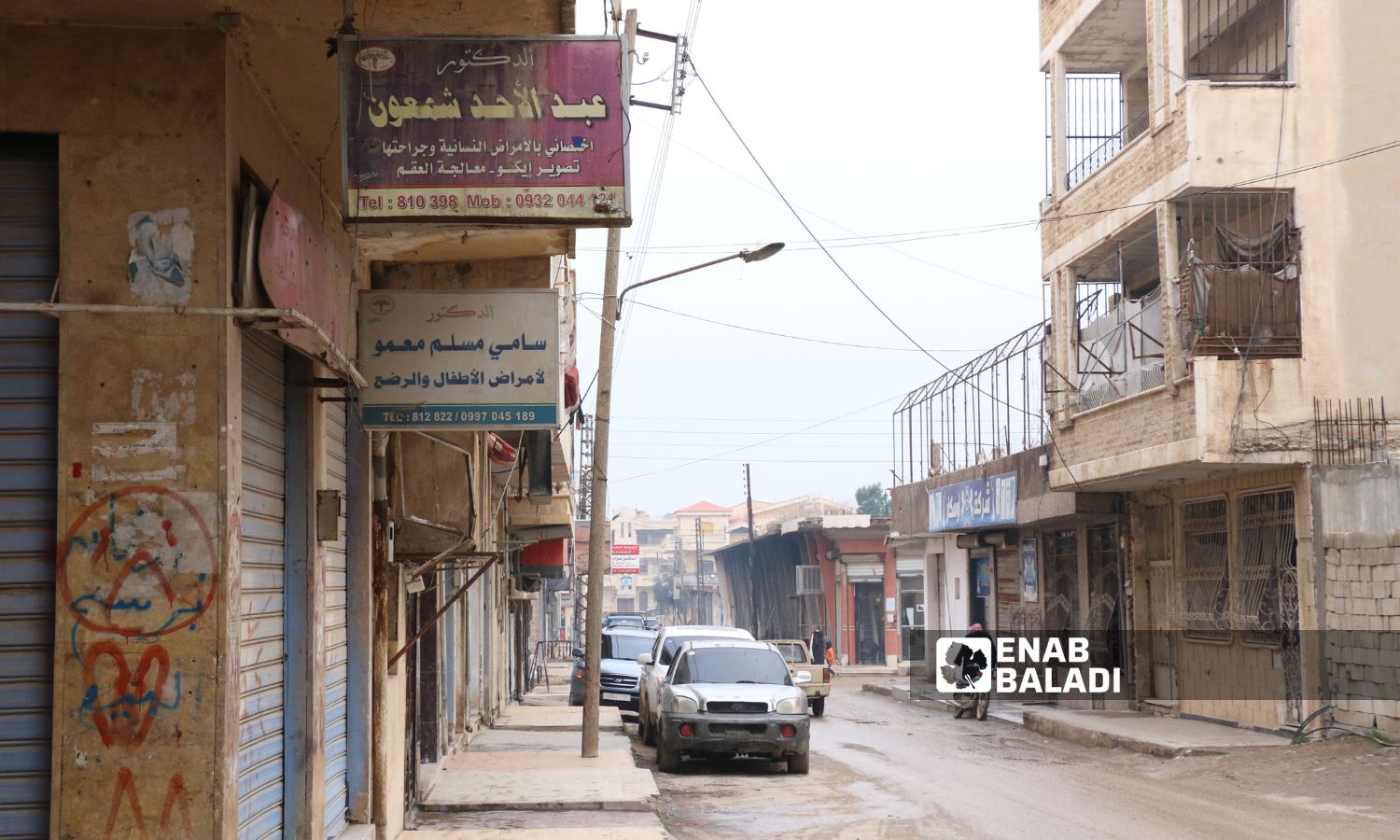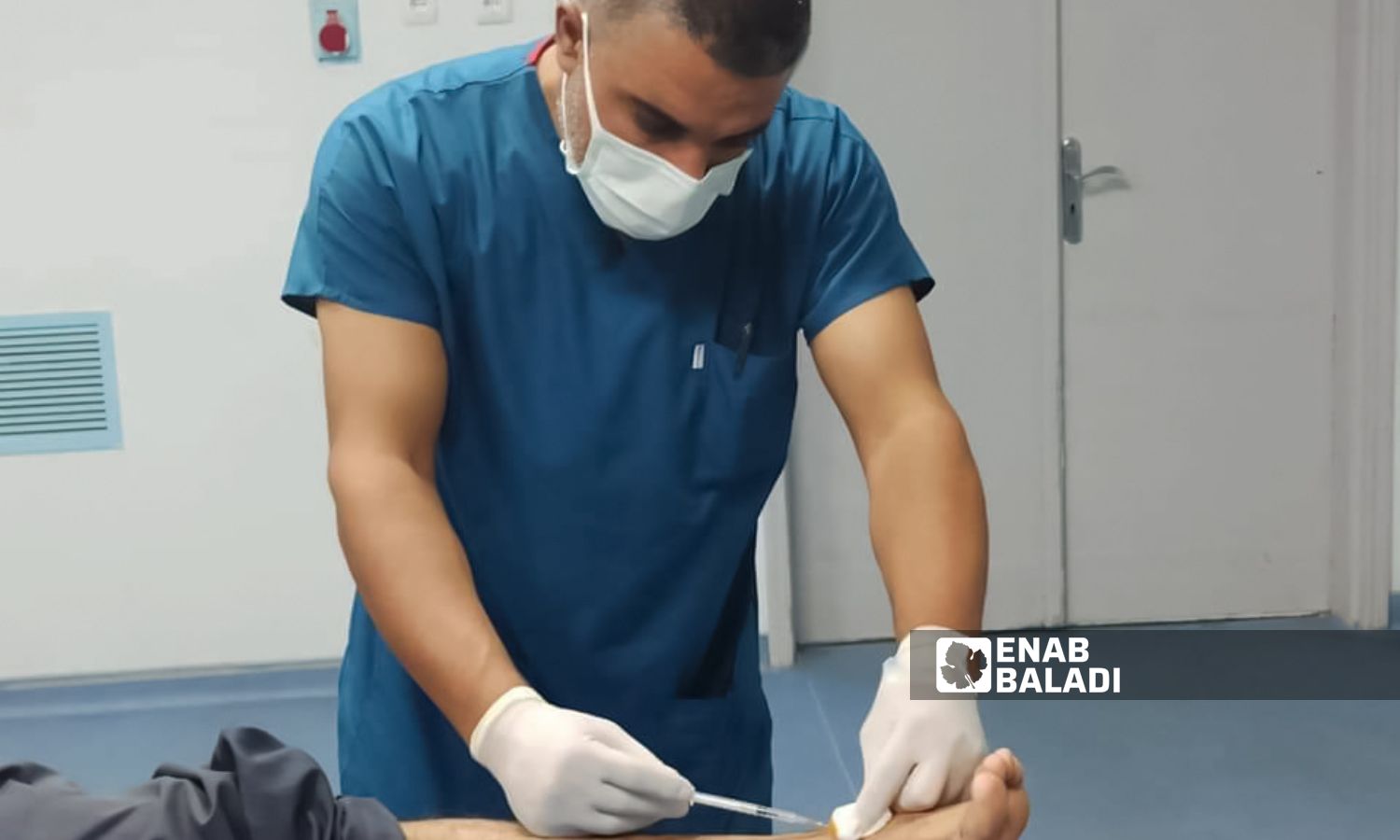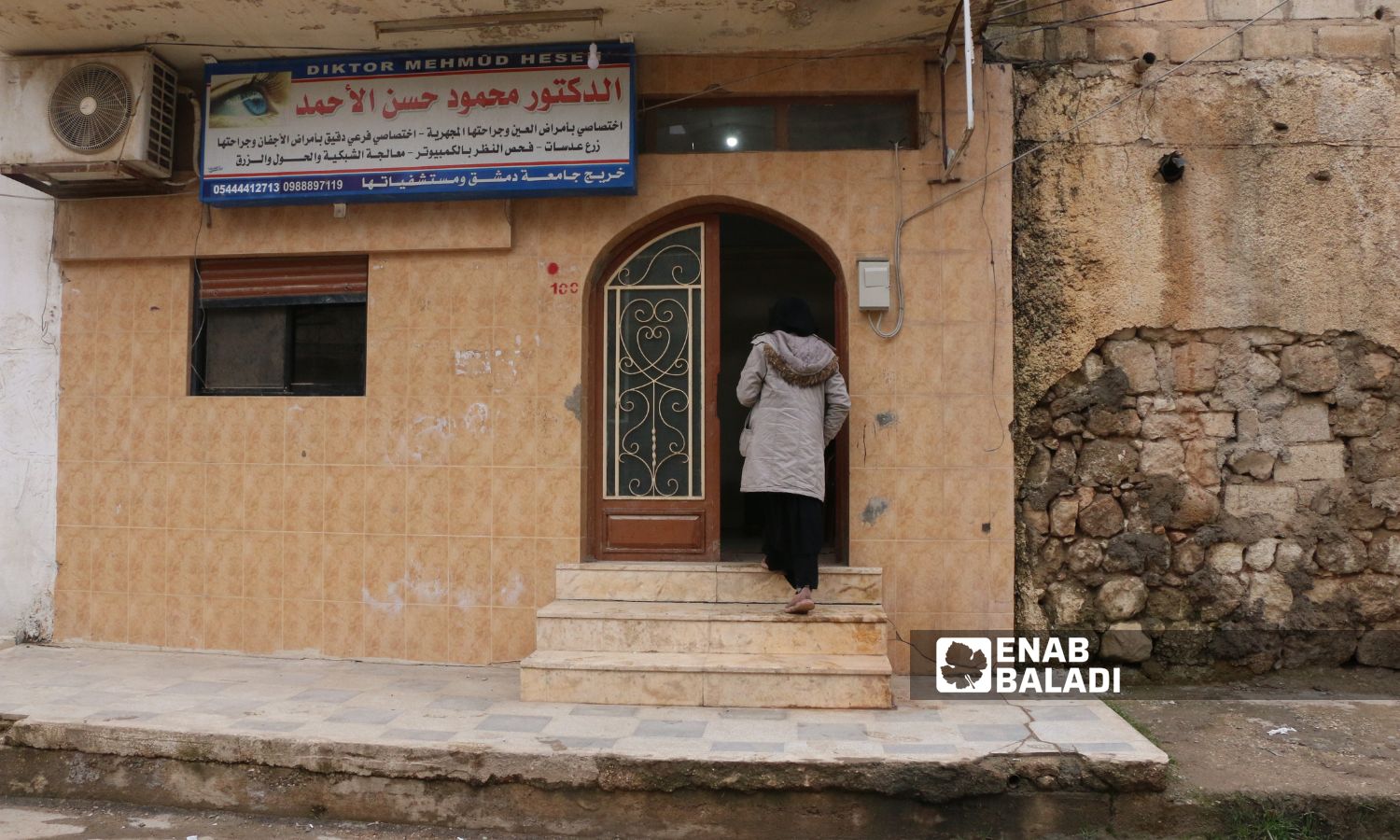



The city of Ras al-Ain, northwest of al-Hasakah, suffers from high examination fees in private clinics, which negatively impacts the lives of residents and increases the difficulty of accessing necessary healthcare.
According to Enab Baladi‘s correspondent in the city, the fees for a private doctor’s examination in Ras al-Ain range between 100 and 150 Turkish liras, which is a significant amount for many residents, especially those with poor economic conditions. The rising fees are not in line with income levels, as Hanaa Redini (45 years old), who works in a sewing workshop, earns 35,000 Syrian pounds per day (about 70 Turkish liras, according to the S-P Today website), an amount that does not cover her family’s needs in the first place.
Redini suffers from stomach problems and needs a weekly medical examination at a private clinic, at a cost of 100 Turkish liras each time. She explained to Enab Baladi that visiting a private doctor means borrowing money from relatives or friends, something she prefers not to do, indicating that the weak healthcare provided by the public sector led her to resort to private clinics, as the National Hospital in Ras al-Ain is suffering from a shortage of doctors and medicines, and the services provided are insufficient.
Ziad al-Hilu (35 years old) suffers from heart problems, which require continuous medical follow-up. However, the fees for examination in private clinics are very high and do not match his work, as he is a construction worker earning 45,000 Syrian pounds per day (about 90 Turkish liras), which prompted him to reduce his medical appointments despite his need for them.
Al-Hilu considers the rising fees of private clinics to be the reason for his inability to access the healthcare he needs and calls for measures to address the problem to ensure the availability of medical care at reasonable fees.
Sumaya Matar (45 years old), a mother of three children, complained about the high costs of medical examinations and her inability to provide necessary healthcare for her children.
In her statement to Enab Baladi, she mentioned that winter sees an increase in diseases among children, making the costs of medical examinations in private clinics exceed 100 Turkish liras, which represents a significant burden on her family. She explained that due to financial constraints, she had to resort to alternative treatments such as using aniseed and herbal teas, since she cannot afford the doctor’s fees and prescription drugs.
Doctor Muhammad al-Assaf said that the reason for the high prices of doctors’ consultations is due to the collapse of the Syrian pound and the high cost of opening and equipping a clinic, including securing the necessary devices to perform the required examinations for the patient, which forces them to raise the prices of their consultations.
He mentioned that doctors are making their utmost efforts to reduce the fees for consultations, but they are unable to lower them further due to the difficult living and economic conditions in the besieged area.

A doctor treats a patient at a medical center in Ras al-Ain, northwest of al-Hasakah – January 15, 2024 (Enab Baladi)
The National Hospital in Ras al-Ain faces obstacles that limit patients’ access to suitable healthcare due to the lack of qualified medical staff and modern medical equipment. Residents doubt the hospital’s capacity to provide suitable health services, which drives them to seek care in the inevitably costly private clinics.
Rakan al-Jaloud, the health director in Ras al-Ain, linked the high costs of medical consultations with the collapse of the Syrian pound and the rising prices of all goods and services, including medicines and medical equipment, which he believes justifies the high examination fees.
The medical official explained to Enab Baladi that the absence of support for the National Hospital and the lack of doctors have led residents to turn to private clinics, contributing to the rise in medical consultation prices.
Al-Jaloud noted that “Ras al-Ain hospital receives hundreds of patients daily, while the health directorate is working to attract doctors to provide their services and contract new ones to reduce costs for the residents.”

A medical clinic in the city of Ras al-Ain, northwest of al-Hasakah – January 15, 2024 (Enab Baladi)
There are three currencies in circulation in Ras al-Ain. The commonly used currency is the Syrian pound, but its volatile nature and unprecedented decline have overwhelmed the residents. The second currency is the Turkish lira (not widely circulated), and the third is the US Dollar.
In a previous statement to Enab Baladi, the director of the Chamber of Commerce and Industry in the Ras al-Ain area, Habu al-Hadar, said that the continued circulation of the Syrian pound poses an economic burden on the residents and leads to increased poverty rates.
He mentioned that these transactions disrupt commercial activity, which necessitates finding an effective solution. He pointed out that the Chamber of Commerce is demanding the adoption of the Turkish lira as an alternative to the Syrian currency, similar to the situation in northern Syria, a measure that would strengthen the economy of the region and make it more stable, benefiting both residents and traders alike.
Ras al-Ain and Tal Abyad are located adjacent to the Turkish border and are controlled by the Turkish-backed Syrian National Army (SNA) and its political umbrella, the Syrian Interim Government (SIG). The border towns are surrounded by fighting fronts with the US-backed Syrian Democratic Forces (SDF), and the Turkish border is considered their only outlet to the outside.
The Interim Government has not adopted the Turkish lira as the currency for circulation in Ras al-Ain and Tal Abyad, despite its adoption in the northern and eastern countryside of Aleppo.
if you think the article contain wrong information or you have additional details Send Correction